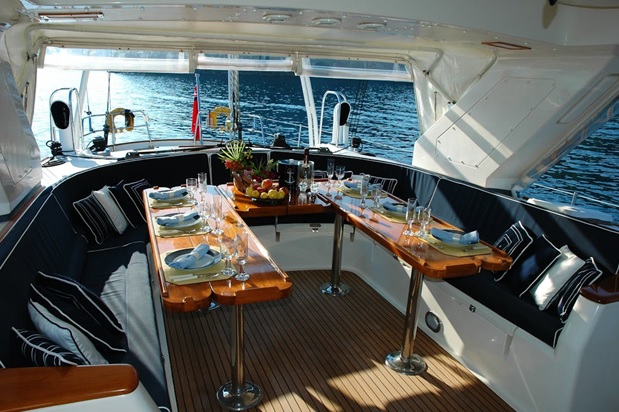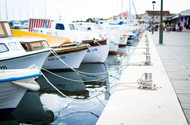What Makes Marine Battery Cables and Terminals Different from Standard Battery Cable and Wire?
9th Aug 2024
If you’ve ever had to replace (or tend to) the electrical infrastructure on board a vessel, even in some limited capacity, it might be very well apparent to you that marine battery cables and terminals are different from standard battery cable - or from other electric wire and cable, for that matter.
The reason for this differentiation has to do with the cable’s suitability at sea (or otherwise in marine environments). This short post will break down some of the fundamental differences and why they are necessary.
It’s About Flexibility
First, think about the inside of a building - you know, the riser and plenum space, behind the walls, between the floors, and where the HVAC equipment is stored.
They’re tight spaces, right? So you can understand a little bit about the trials of being an electrician or just a construction worker in general.
Now imagine that space, but on a boat. If you’re imagining it would be even more limiting, you’d be right.
The space on board a vessel is cramped even in the areas that are supposed to be occupied by people. So you can imagine then just how much more cramped whatever space is leftover is.
The point is, space comes at a premium on board vessels, and there’s precious little real estate to run and route the essentials. We still need to be able to work in marine battery wire, but there’s not a lot of space to do it.
Therefore, marine battery cable has to be highly flexible - otherwise it would be impossible to work it into the tight spaces wherein it needs to fit.
The other component of this is that marine battery cable - along with everything else on the vessel - is subject to constant vibrations and motion, not only resulting from the engine but from the nature of the environment.
So it’s foregone that marine battery cable needs to be highly flexible. The mode of achieving this is done by making wire and cable that have a very high conductor strand count (regardless of material used, although it is typically copper). This makes the wire less stiff, and therefore easier to utilize in cramped spaces. It also makes the wire more amenable to bending and resisting constant vibration and movement.
It’s About Tinning
In addition to the fact that marine battery wire must be highly flexible, it also is generally made of individually tinned copper conductors.
Generally, copper is used as a conductor in marine wire because of its excellent electrical conductivity. There is a big drawback to copper, though, and it is that it is highly suspect to corrosion. Specifically, it is highly suspect to oxidation.
Oxidative corrosion is a threat to copper conductors on land, and everywhere else on earth, but in humid environments, specifically in marine environments, the threat is elevated to a fever pitch.
When copper conductors oxidize, they convert into copper oxide (a flaky blue-green material) that has terrible electrical conductivity. When wires oxidize, they will not function as intended and can produce a much higher risk of fire
To solve this problem, manufacturers make marine battery wire with individually tinned copper conductors. The process of individually tinning the conductors helps serve as a second layer of protection to the wire, the first being the insulative jacket.
If the jacket is compromised, or if the conductors are exposed (say, at a connection) the tinning on the surface of the copper helps prevent corrosion from traveling up the wire, where it could spread underneath the jacket, crippling the system.
It’s About the Insulation
Lastly, marine battery cable and terminals are specialized in terms of the insulation they use. Because of the rigors of life and use in marine environments, they must be made with highly durable, highly specialized insulation to protect them.
What that material is can vary according to the specifics of the manufacturer, but suffice it to say it must protect the wire and cable underneath against a wide range of detracting influences.
For one, marine battery cable and wire are usually made with abrasion resistant insulation that is physically durable. They are also usually made with insulation that is resistant to oil, gasoline, acids, and alkaline substances. Some are even made with UV protection, although that is more common in solar panel cable - but it is not unheard of in marine battery cable, either.

Learn More About Marine Battery Cable and Terminals
Do you still have questions that are as yet unanswered with respect to marine battery cables and terminals? Feel free to get in touch with us at Sales@EWCSWire.com or by phone at 800-262-1598 and we will do our best to help you out.
Meanwhile, take a look through our collections of specialty wire and cable. In addition to marine battery wire, we also sell flexible welding cable, instrumentation and alarm cable (including shielded alarm cable and fire alarm cable) tray cable, aluminum cable, submersible pump cable, solar panel cable, DLO cable, and many others.

